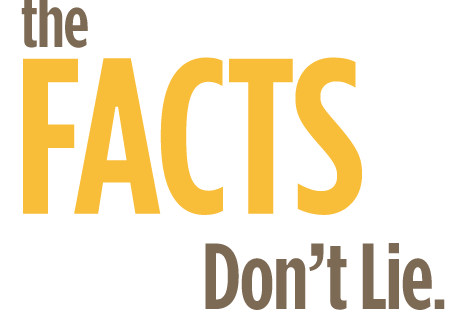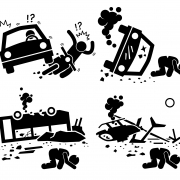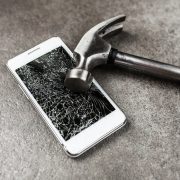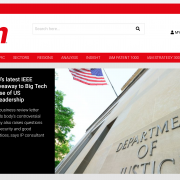New Empirical Data Demonstrates Continued Failure of IEEE 2015 Patent Policy
I have written extensively about the many negative effects of the 2015 IEEE patent policy and it was gratifying to see the US Department of Justice (DOJ) acknowledging these negative effects (p9). In recent months, new data show the IEEE’s 2015 patent policy continues to compromise IEEE-SA standards, reputation, and future, as follows.
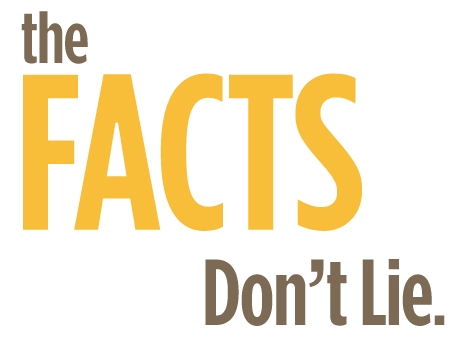
- In 2021, 75% of LOA submitters rejected the 2015 patent policy.
As we reported earlier, in Q1 of 2021, 14 of 15 or 93% (!) of submitters of regular letters of assurance (LOAs) chose to provide licensing assurance on the pre-2015 IEEE patent policy.
In late September, new LOA statistics for (roughly) Q2 and Q3 2021 showed that of the 9 LOAs accepted during that period, three were negative LOAs (33.3%), one was filed under the pre-2015 patent policy and five were filed under the 2015 policy. One of these negative LOAs was apparently submitted by GE who thus far has been less visible in this area.
Aggregating these numbers from the first 9 months of 2021 give a staggering picture. Of the 24 LOAs accepted this year: 62.5% (15) submitters chose to file under the pre-2015 patent policy, 12.5% (3) were negative LOAs and only 25% (6) were positive LOAs under the 2015 policy.
In other words, in 2021 alone, 6 ½ years after the failed 2015 policy was developed under a controversial closed process took effect, 75% of LOA submitters reject it loudly and clearly by submitting LOAs under the pre-2015 patent policy or submitting negative LOAs. These staggering numbers add on to earlier statistics, such as the 2016-2019 statistics revealed by the DOJ letter last year that showed 77% of Wi-Fi LOAs were negative during that time frame.
- New stakeholders are submitting negative LOAs.
According to the IEEE LOA database, published negative LOAs to date were submitted by Alcatel Lucent, Cooper Power Systems, Ericsson, InterDigital, Koninklijke KPN, Nokia, Orange, Panasonic and Symbyon Systems. In May 2021 it appears two additional innovators now choose to submit negative LOAs. These are General Electric (GE) and the research institute Fraunhofer. These companies join growing number of other companies who seem to opt to submit LOAs under the pre-2015 policy including Huawei, KT Corporation, LG Electronics Inc., MediaTek Inc., NEC Corporation, SK Telecom Co., Sony Corporation, WILUS Institute of Standards and Technology Inc. and others.
- All IEEE 802.11 (Wi-Fi) standards now lost ANSI-approval as American National Standards.
The June 18 2021 volume of ANSI Standards Action (pages 28-30) three pages list showing withdrawal of ANS status from numerous IEEE 802.11 standards amendments. As far as I can determine as a consequence there are now no more IEEE 802.11 Wi-Fi standards amendments that still enjoy ANS designation. This quality degradation is a direct result of the failed 2015 patent policy and, as I have written previously, the IEEE’s attempt to conceal the severe negative LOA situation.
- Governance issues persist. Are new antitrust issues on the horizon?
In an intriguing May 2021 Board of Governors resolution, IEEE admitted that “everyone has an interest in the patent policy.” One might think that if “everyone has an interest in the patent policy” it would be handled openly. Alas, the June 16 the Standards Board (SASB) agenda at this link showed agenda item 11.1 as update on the patent policy but the “secret society” continues to keep things secret – as this agenda item cannot be found in the minutes.
Furthermore, in deviation from years of prior practice, IEEE chose not to hold an open Patent Committee (PatCom) meeting in June 2021. And the much-awaited September 2021 telegraphic PatCom meeting informed that participants that substance cannot be discussed since the patent issues are being handled in executive sessions. This reality, along with IEEE’s recent hire of yet another antitrust outside counsel (see here) suggests IEEE-SA feels it has a lot to hide and has antitrust concerns.
- ISO questions the fast-tracking of IEEE 802.11 standards as international standards.
As I observed last year, the unsustainable IEEE negative LOA situation has now began to contaminate international SDOs such as ISO. According to a recent MLEX story, IEEE’s bid to receive ISO International Standard status to IEEE 802.11ax is meeting opposition given its prevalent negative LOA problem. ISO’s spokesperson said “it is premature to discuss [these] matters” so I guess we will all have to stay tuned. It does seem, however, that ISO is about to join ANSI’s example and moving forward reject the ISO seal from IEEE’s damaged standards.
“Insanity is doing the same thing over and over again but expecting different results” as the saying goes. IEEE recently issued a call for comments on its failed 2015 patent policy but drafted it in a manner attempting to muzzle rational voices calling for the policy’s repeal. If their organization’s future is their priority – I hope IEEE leadership will wake up and smell the coffee, because the ubiquitous empirical data from the past 6 ½ years is clear. If, rather, such leaders prioritize the commercial interests of the organizations they are employed with or affiliated with over IEEE’s – the latter will continue to foot the bill.

